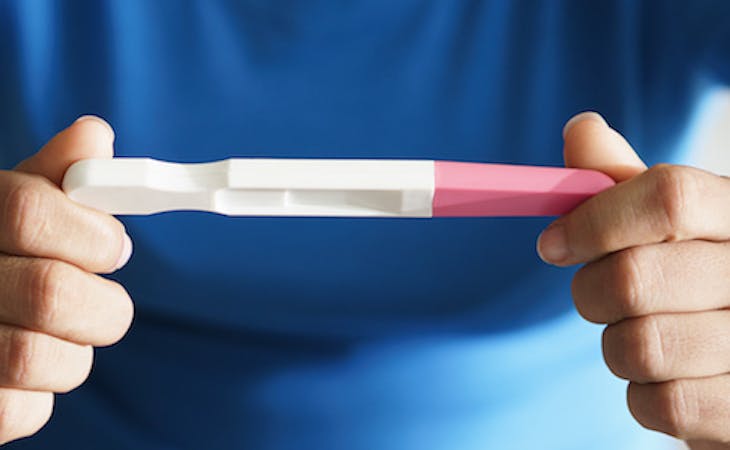You know just how much a poor night’s sleep can mess with your ability to function the next day, and you may also know that chronic sleep deprivation can lead to numerous health problems.
It turns out that lack of sleep can do a number on your fertility. If you’re trying to conceive, it’s important to prioritize sleep because irregular rest messes with your reproductive hormones.
“The reproductive system is linked to everything else in your body,” says Zaher Merhi, MD, reproductive endocrinologist, infertility specialist, and founder of Rejuvenating Fertility Center. “The whole body should be in very good shape in order to optimize fertility in men and women.”
So don’t forget about staying active, eating healthy, and trying to manage stress too. Then read on to learn more about the connection between sleep and fertility in women, sleep and male fertility, and what everyone can do to get better rest for optimal fertility.
Does sleep affect fertility?
Poor sleep can impact fertility for both women and men.
In women specifically, disruption to the hypothalamus-pituitary-adrenal (HPA) axis and circadian rhythms may factor in.
The HPA axis plays a role in stress, digestion, immunity, and mood. It also “leads everything that impacts fertility,” Merhi says.
Sleep loss can lead to excessive HPA activation, which impacts several reproductive hormones, including luteinizing hormone (LH), follicle-stimulating hormone (FSH), and progesterone.
If a woman doesn’t have the right levels of FSH and LH at the right times during her menstruation cycle, it can lead to irregular or absent periods or prevent ovulation. And you need an egg to have a baby. Additionally, low levels of progesterone can lead to an early miscarriage, says Ohio-based Kim Langdon, MD, ob-gyn with Medzino.
Circadian rhythms are also very important. “FSH, LH, and estrogen change between day and night,” Merhi explains. “When there is a circadian disruption, it can cause dysregulation of these hormones.” Research links circadian rhythm disruptions with decreased fertility and increased rates of miscarriage.
Sleep and male fertility
Sleep and male fertility are also linked. In one study of almost 1,000 healthy guys, those who slept less than six hours had significantly lower numbers of sperm cells in their semen. And in animal studies, poor sleep leads to decreased testosterone levels and reduced sperm motility.
Testosterone is a hormone that plays a role in sperm production and sex drive. Testosterone levels are often highest in the morning, immediately after a long snooze, and fall throughout the day.
Extra-long slumber, on the other hand, may be associated with poorer quality sleep or other ingrained health problems (depression, obesity, etc.) that impact fertility.
Does sleep apnea cause infertility?
“Tons of studies link abnormal sleep with obesity and, ultimately, diabetes and sleep apnea,” Merhi says. Doctors consider these conditions metabolic disorders, and “metabolism and fertility go hand in hand,” he adds. This is true for women and men.
Research has also found a link between sleep apnea and erectile dysfunction (ED). In one study of men diagnosed with sleep apnea, a breathing disorder that affects 22 million Americans, an incredible 70% also suffered from ED.
Researchers found that treating sleep apnea ultimately improved the ED and the patient’s sex life overall. Obstructive sleep apnea is associated with obesity and other conditions related to low sperm production, and that can disrupt your sleep as well.
How to improve your sleep for optimal fertility
Getting better sleep is a good idea whether or not you’re trying to conceive. But if sleep and fertility are your focus, try these tips to rest better.
Stick to a consistent schedule
Circadian rhythms like predictability. Even sleeping in and staying up a few extra hours on the weekend can throw you off. Try as much as you can to have consistent wake and sleep times, shifting them no more than an hour on the weekends, if you must.
Avoid stimulants at night
Alcohol, news channels—even horror movies can keep you awake. Instead, do something calming leading up to bedtime, such as taking a warm bath, meditating, journaling, or reading. Also, keep the TV out of the bedroom, Merhi says. You want to associate your bed with only sleep and sex.
Stay off the internet
“The more you read about infertility, the more you obsess about it and try to control it,” Merhi says. “We cannot control it. Trust your doctor.” That holds whether you are trying IVF or following the advice of your ob-gyn.
Talk it out
Trying to conceive can be frustrating, and that stress may make it harder to sleep. Make the time before bed a “no baby talk” zone and instead set aside time during the day to talk about the process and your concerns with your partner. You may also want to work with a reproductive psychologist or find a support group.
Get outside first thing in the morning
Exposure to sunlight signals to your brain, “Hey, it’s morning!” This helps regulate your circadian rhythm. Consider this an additional reason to head out for a walk or run for some exercise.
Find the right sleep position
The right sleep position can make a world of difference when it comes to your ability to get good shuteye. While there are pros and cons to every sleep position, back sleeping and side sleeping are typically the healthiest sleep positions to choose.
If you think you could be pregnant now or soon, know that any sleep position is safe up to week 30 of pregnancy. However, you may not feel all that comfortable lying flat on your back as your pregnancy goes on, so consider side sleeping instead.
A good night’s sleep is also essential for a healthy pregnancy. Follow this advice for sleeping well during every trimester.




